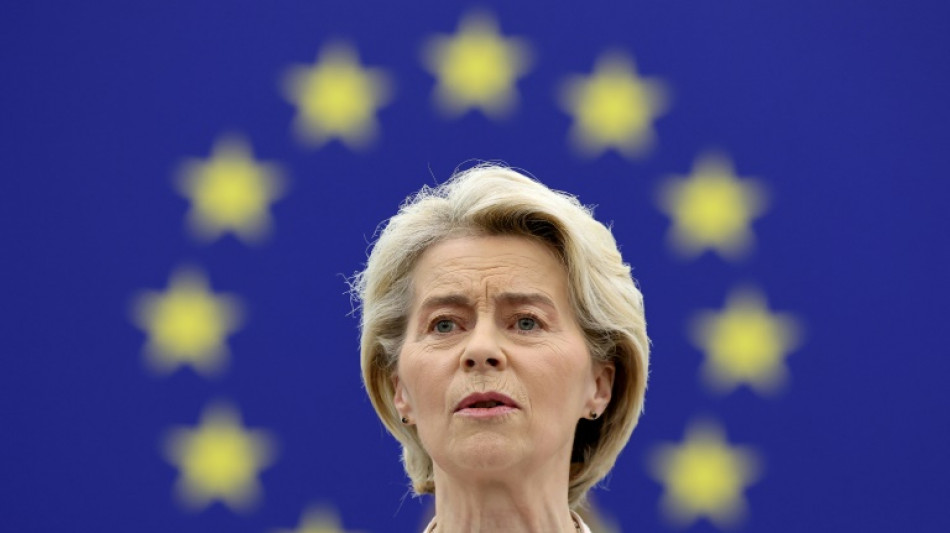
-
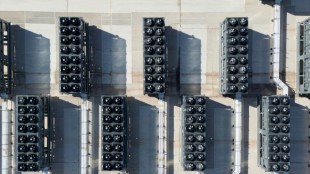 Nasdaq tumbles on renewed angst over AI building boom
Nasdaq tumbles on renewed angst over AI building boom
-
S.Africa expels Kenyans working on US Afrikaner 'refugee' applications

-
 US Congress ends Syria sanctions
US Congress ends Syria sanctions
-
Cherki inspires Man City cruise into League Cup semis

-
 Billionaire Trump nominee confirmed to lead NASA amid Moon race
Billionaire Trump nominee confirmed to lead NASA amid Moon race
-
Mahomes undergoes surgery, could return for 2026 opener: Chiefs

-
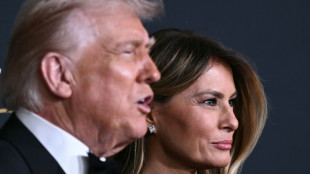 Melania Trump steps into spotlight in Amazon film trailer
Melania Trump steps into spotlight in Amazon film trailer
-
Brazil Senate advances bill that could cut Bolsonaro jail term
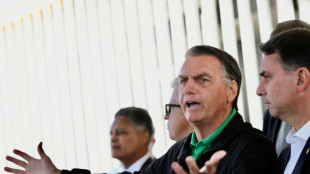
-
 Safonov hero as PSG beat Flamengo in Intercontinental Cup
Safonov hero as PSG beat Flamengo in Intercontinental Cup
-
Oscars to stream exclusively on YouTube from 2029
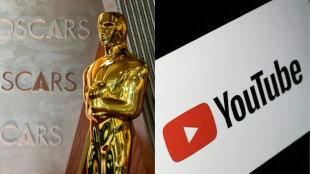
-
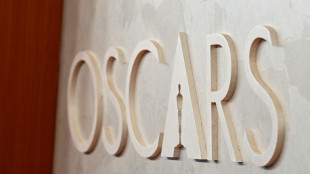 Oscars to stream exclusively on YouTube from 2029: Academy
Oscars to stream exclusively on YouTube from 2029: Academy
-
CNN's future unclear as Trump applies pressure
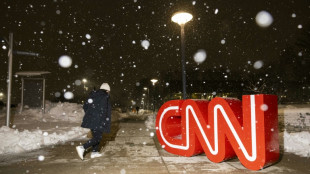
-
 Brazil threatens to walk if EU delays Mercosur deal
Brazil threatens to walk if EU delays Mercosur deal
-
Zelensky says Russia preparing for new 'year of war'
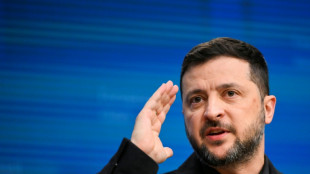
-
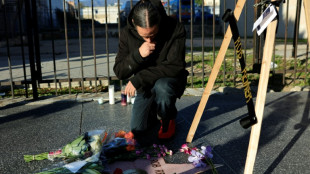 Rob Reiner's son appears in court over parents' murder
Rob Reiner's son appears in court over parents' murder
-
US Congress passes defense bill defying Trump anti-Europe rhetoric

-
 Three Russia-themed anti-war films shortlisted for Oscars
Three Russia-themed anti-war films shortlisted for Oscars
-
US oil blockade of Venezuela: what we know
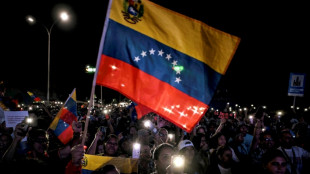
-
 Palace boss Glasner says contract talks on hold due to hectic schedule
Palace boss Glasner says contract talks on hold due to hectic schedule
-
Netflix to launch FIFA World Cup video game
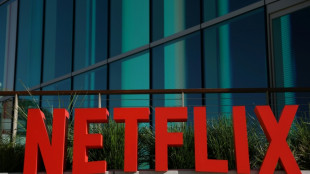
-
 Venezuela says oil exports continue normally despite Trump 'blockade'
Venezuela says oil exports continue normally despite Trump 'blockade'
-
German MPs approve 50 bn euros in military purchases

-
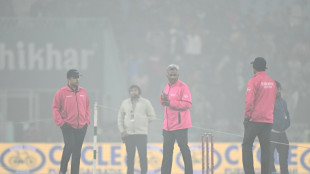 India v South Africa 4th T20 abandoned due to fog
India v South Africa 4th T20 abandoned due to fog
-
Hydrogen plays part in global warming: study

-
 EU's Mercosur trade deal hits French, Italian roadblock
EU's Mercosur trade deal hits French, Italian roadblock
-
What next for Belarus after US deal on prisoners, sanctions?
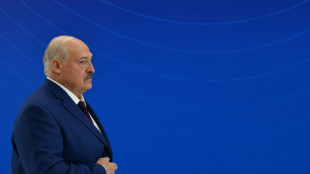
-
 Brazil Senate debates bill that could slash Bolsonaro jail term
Brazil Senate debates bill that could slash Bolsonaro jail term
-
Coe shares 'frustration' over marathon record despite Kenyan's doping ban
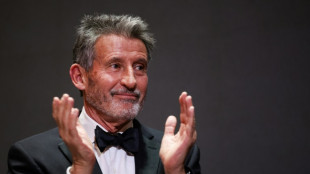
-
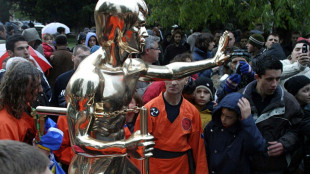 Stolen Bruce Lee statue 'returns' to Bosnia town
Stolen Bruce Lee statue 'returns' to Bosnia town
-
Veteran Suarez signs new Inter Miami contract

-
 Warner Bros rejects Paramount bid, sticks with Netflix
Warner Bros rejects Paramount bid, sticks with Netflix
-
Crude prices surge after Trump orders Venezuela oil blockade
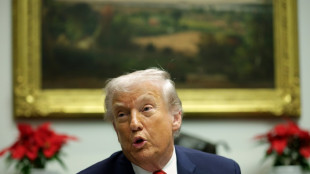
-
 Balkan nations offer lessons on handling cow virus sowing turmoil
Balkan nations offer lessons on handling cow virus sowing turmoil
-
French readers lap up Sarkozy's prison diaries

-
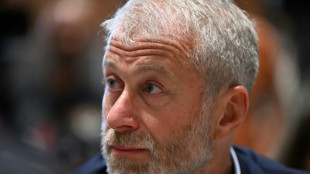 UK PM warns Abramovich 'clock is ticking' over Chelsea sale fund
UK PM warns Abramovich 'clock is ticking' over Chelsea sale fund
-
Warner Bros. Discovery rejects Paramount bid

-
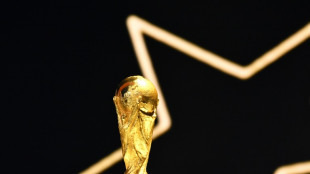 Winners of 2026 World Cup to pocket $50 million in prize money
Winners of 2026 World Cup to pocket $50 million in prize money
-
World no. 1 Alcaraz ends 'incredible ride' with coach Ferrero

-
 World number one Alcaraz announces 'difficult' split with coach Ferrero
World number one Alcaraz announces 'difficult' split with coach Ferrero
-
Iran boxer sentenced to death at 'imminent' risk of execution: rights groups

-
 Snicko operator admits error that led to Carey's Ashes reprieve
Snicko operator admits error that led to Carey's Ashes reprieve
-
Finland PM apologises to Asian countries over MPs' mocking posts
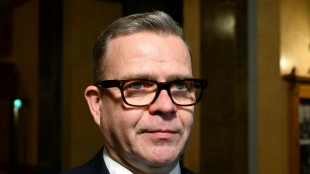
-
 Doctors in England go on strike for 14th time
Doctors in England go on strike for 14th time
-
Romania journalists back media outlet that sparked graft protests
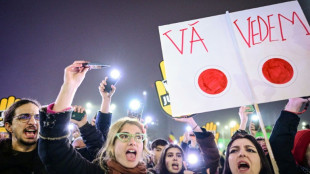
-
 Rob Reiner's son awaiting court appearance on murder charges
Rob Reiner's son awaiting court appearance on murder charges
-
Ghana's Highlife finds its rhythm on UNESCO world stage

-
 Stocks gain as traders bet on interest rate moves
Stocks gain as traders bet on interest rate moves
-
France probes 'foreign interference' after malware found on ferry
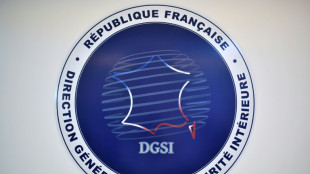
-
 Europe's Ariane 6 rocket puts EU navigation satellites in orbit
Europe's Ariane 6 rocket puts EU navigation satellites in orbit
-
Bleak end to the year as German business morale drops


Judgment day in EU chief's Covid vaccine texts case
A top court is to rule Wednesday on whether the EU failed the transparency test by declining to release text messages sent by Ursula von der Leyen to the head of Pfizer as the bloc tried to secure Covid vaccines.
The case before the Court of Justice of the European Union (EUCJ) is seen as a test for the EU Commission president, whose governance has at times been accused of centralised and opaque decision-making.
At its centre are elusive exchanges between von der Leyen and Albert Bourla, chief executive of Pfizer -- which was chosen by the bloc as its main vaccine supplier at the height of the pandemic.
The New York Times, which revealed the existence of the messages, sued the commission in 2023 after Brussels declined to produce them following a freedom of information request.
The commission argued it could not find the texts because they had not been recorded and archived -- something it says is done only when the content is deemed "substantive".
"The commission never denied the existence of text message exchanges," an EU official said. "What it was argued... is that these exchanges did not contain important information".
The New York Times has asked the lower chamber of the Luxembourg-based EUCJ to quash the commission's decision not to hand it the messages. The verdict can be appealed.
- 'Maladministration' -
The EU moved swiftly after the Covid pandemic emerged in 2020 to secure vaccines for member countries to buy for their citizens and residents at a time of massive global demand for the shots.
But many aspects of the procurement from Pfizer have been kept confidential, leading to claims of a lack of transparency -- and several legal proceedings in Belgium and with EU courts.
"This case presents a very important issue: whether officials may evade public transparency by communicating via text messages rather than more traditional means," a lawyer for The Times, Bondine Kloostra, said in her opening arguments in November.
Lawyers for the 27-nation bloc have argued the private messages did not constitute part of the vaccine negotiation.
They might have involved side issues, such as von der Leyen and Bourla agreeing to speak on a certain day, at a certain time, they suggested.
Commission workers, including its chief, do not have an obligation to record all their emails, texts and instant messaging chats, as this would be "materially impossible", an EU official said.
Emails are automatically deleted after six months, he noted.
A duty to archive arises only when such messages contain important information that is not "short-lived" and relates to the commission's policies, activities and decisions.
Such assessment is done in the first instance by the person receiving or sending the texts, so in the case before the court by von der Leyen.
The commission's lawyer, Paolo Stancanelli, said in November that its services asked to track down the messages after The Times reached out to the EU chief's cabinet, which replied it was unable to find them.
In January 2022, the EU's ombudsman described this as "maladministration", saying the messages should have been subject to the EU's public transparency rules for official documents.
T.Bondarenko--BTB

